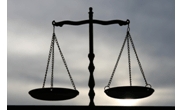Government/Policy

April 18, 2019
Leibowitz on Trade: AIIS Takes Its Case to the Supreme Court
Written by John Packard
Trade attorney and Steel Market Update contributor Lewis Leibowitz offers the following update on events in Washington:
The lawsuit challenging the constitutionality of Section 232 took an interesting turn earlier this week, with plaintiffs’ petition for immediate Supreme Court review of the case, without passing through the Court of Appeals for the Federal Circuit. Ordinarily, the Federal Circuit would receive briefs and hear oral argument, decide the appeal and only then would the case go before the Supreme Court. The plaintiffs articulated their reasons to forgo that customary step in a petition for certiorari docketed in the Supreme Court yesterday (American Institute for International Steel v. United States, Supreme Court Docket 18-1317).
The case was appealed on March 25 to the Court of Appeals for the Federal Circuit by these same plaintiffs, because the Supreme Court does not have jurisdiction to hear an appeal that has not been docketed in the Court of Appeals. The relevant statute gives the Supreme Court the authority to take the case away from the Court of Appeals, but not the obligation to do so. The Court’s rules provide that a case is accepted (certiorari granted) if four of the nine Justices vote to do so.
Plaintiffs therefore have a heavy burden to convince the Court to hear a case out of the traditional sequence. The Supreme Court rules set a very high bar to accept these cases, stating that a petition for certiorari before the decision of a court of appeals “will be granted only upon a showing that the case is of such imperative public importance as to justify deviation from normal appellate practice and to require immediate determination in this Court.” Only rarely has the Supreme Court done this; but it is not unheard of. One instance I can think of was the Nixon tapes case (United States v. Nixon (1974)).
Plaintiffs’ chief argument is that only the High Court can make a decision in this case. The three-judge panel in the Court of International Trade ruled that a 43-year-old Supreme Court case (Federal Energy Admin. v. Algonquin SNG (1976)) held that Section 232 of the Trade Expansion Act of 1962 was a constitutional delegation of authority by Congress to the President of United States. If the plaintiffs are to prevail, only the Supreme Court can limit or overrule the Algonquin decision.
Therefore, plaintiffs argued, it would waste the time of all parties to force the case through the Court of Appeals for the Federal Circuit, which may also find that the constitutionality of Section 232 is settled by a Supreme Court case that may be outdated (as plaintiffs have argued) but is still binding on the lower courts.
In addition, there is the fact that the Court of International Trade handled the case with a three-judge panel. Normally that court hears cases before a single judge. Designating three judges to hear the AIIS case signals that the issues were particularly important and/or troubling. In such a case, the Supreme Court might be influenced to take the case without waiting for the Federal Circuit to hear and decide it.
The plaintiffs also pointed to the importance to the U.S. economy of a quick decision. The distortions caused by the tariffs cannot be redressed simply by ordering repayment of tariffs, because in many instances imports did not enter the United States. Moreover, those exporters of agricultural and other goods harmed by the retaliatory tariffs imposed by our trading partners remain in effect and further damage the economy, compounding the economic damage.
To those who have asked me whether all of this means a decision to hear the case, I can only respond that I am not on the Court. The nine Justices can hear the case if they would like, but they can refuse and do not need to give a reason. They will all know about the rule on hearing cases before a court of appeals has made a decision. It is possible the Court will agree to hear the case—but it’s a “long putt.” It seems more likely that they will let the case run its normal course through the Court of Appeals.
The government is due to respond to the petition for certiorari by May 17. It is likely that the Supreme Court will decide whether or not to hear the case by the end of June, when its current term ends.
Lewis Leibowitz
The Law Office of Lewis E. Leibowitz
1400 16th Street, N.W.
Suite 350
Washington, D.C. 20036
Phone: (202) 776-1142
Fax: (202) 861-2924
Cell: (202) 250-1551







